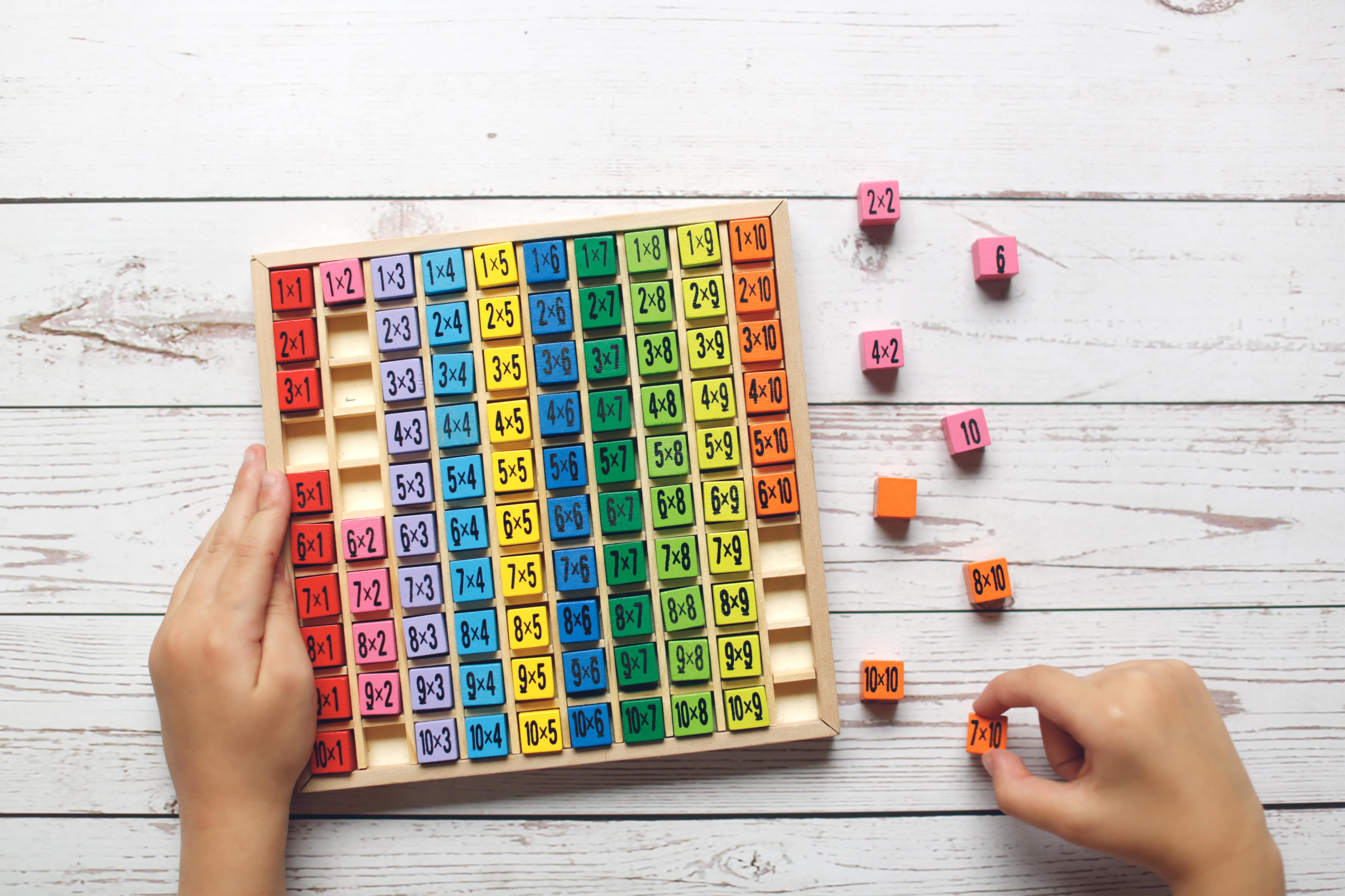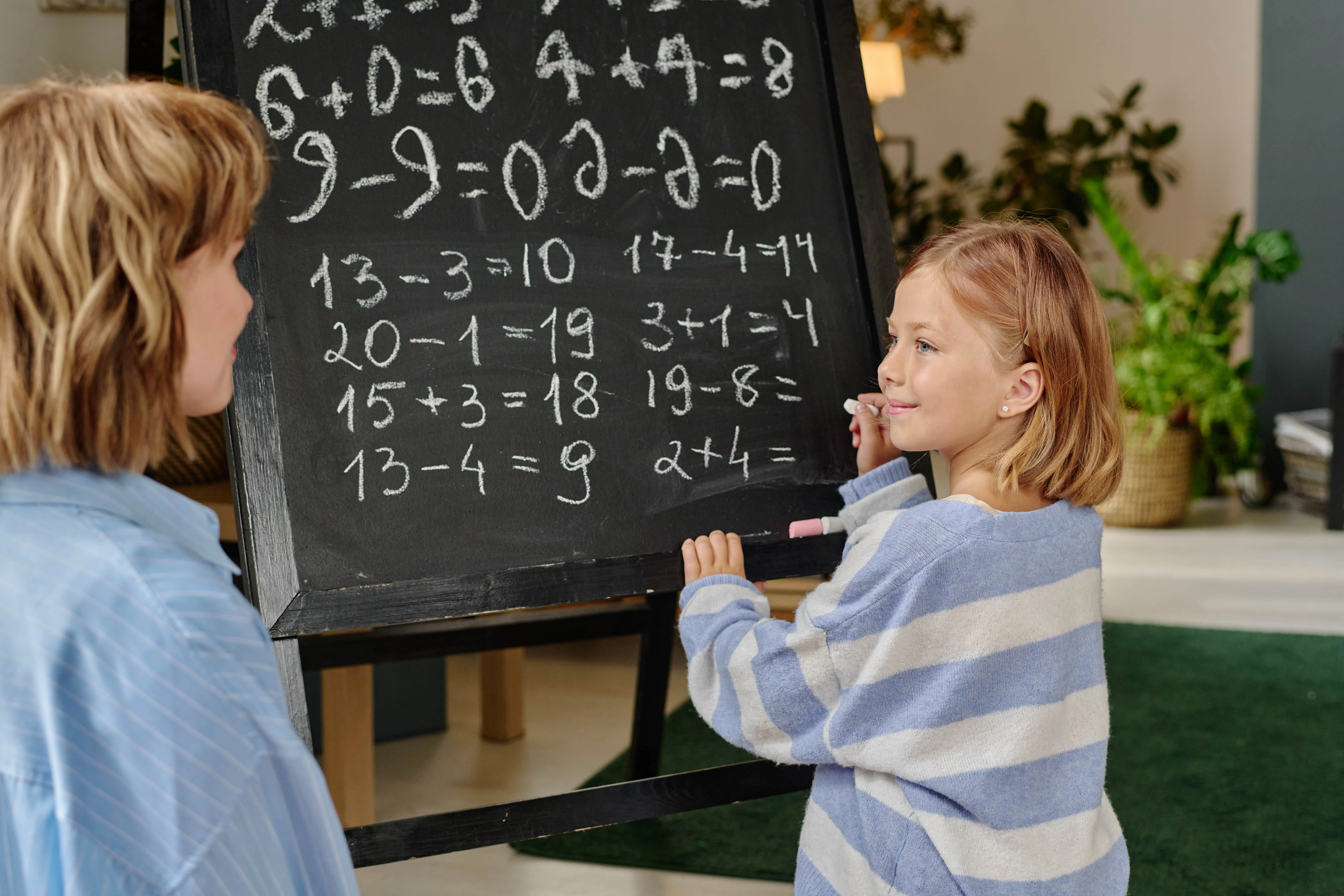When Should Kids Start Learning Multiplication? A Grade-by-Grade Guide

Why Learning Multiplication Matters
Multiplication is woven into many areas of mathematics, from fractions and percentages to algebra and geometry. A solid grasp of it is essential to progress to higher math concepts, like division, fractions, algebra, and geometry.
Outside the classroom, multiplication also helps kids improve in the following areas:
Problem-Solving
Multiplication is a simple mental shortcut for addition. Mastering multiples makes it easier and faster for kids to identify patterns and relationships between numbers, an essential part of logical reasoning.
Real-World Skills Like Budgeting
Knowing their times tables, and more importantly, understanding how multiplication works, can help kids with practical skills like budgeting and measurement. It’s one thing to know that 3 x 5 = 15, but another thing altogether to understand that if a video game costs $15 and you save $5 a week, it will take you three weeks to buy it.
Simply put, multiplication is crucial for understanding how money works and making wise financial decisions.
Understanding Readiness for Multiplication
If you’ve ever wondered “What are multiples for kids?” and why they matter, you’re asking the same thing many parents want to know.
There’s no set age or grade level at which kids are automatically ready to learn multiplication. Children learn at different paces, so a better way to gauge if your little one is ready is to see if they have the foundational skills needed to understand it.
The following are some signs your child is ready:
- They can recognize patterns in numbers.
- They understand repeated addition.
- They are comfortable with skip counting.
- They’ve mastered addition and subtraction.
The skills above help multiplication feel like the natural next step in math learning.
Grade-by-Grade Multiplication Guide
Multiplication is introduced step by step, not all at once, as kids progress through kindergarten and elementary school. Each stage builds on the skills learned during the one before.
Kindergarten to Grade 1
- Focus: Foundational number sense, skip counting, grouping objects
- Activities: Grouping toys, counting in 2s, 5s, and 10s
There are no formal multiplication lessons yet; just pattern building to prepare for future concepts.
Grade 2
- Focus: Introduction to multiplication as repeated addition
- Activities: Using equal groups, number lines, and arrays
Here, kids start to recognize patterns in numbers and begin working with small multiples, such as 2, 5, and 10.
Grade 3
- Focus: Mastery of multiplication tables and applying them in context
- Activities: Word problems, real-world examples, and fact practice up to 10 or 12
By this stage, kids are expected to master multiplication tables and quickly recall multiples up to 10 or 12. They work toward recalling their times tables quickly and begin to see how multiplication connects to division.
Grade 4 and Beyond
- Focus: Applying multiplication to more complex problems
- Activities: Multi-digit multiplication, fractions, decimals, and geometry applications like area
At this stage, multiplication becomes a problem-solving tool rather than just a collection of tables to memorize.
Tips for Supporting Your Child
Kids don’t always grasp multiplication right away, and that’s natural and to be expected. What’s important is for parents and teachers to recognize when the child is struggling and provide support.
Practicing patience and giving encouragement can go a long way toward framing learning multiplication as a fun adventure, not something to be scared of or worried about.
Here are some ways you can support a young learner as they master multiplication:
Connect Multiplication to Real Life Uses
Show kids how multiplication is used in everyday situations. For instance, you can teach them how to double the recipe for their favorite chocolate chip cookie or calculate the total cost of the snacks they get at the store.
Make It Fun
When multiplication feels like a chore, it helps to turn it into a game. Educational apps and platforms, board games, songs, and flashcards can make learning more enjoyable and interactive. You can even offer small rewards to make learning something kids look forward to.
Keep Study Sessions Short
Kids have short attention spans, so focused lessons and quick drills work better than long, stressful study sessions.
Celebrate Progress
Praise the child for their efforts as much as for their correct answers. This helps kids build confidence and encourages them to keep trying, even when they don’t always get the answers right.
Help Your Child Master Multiplication With Confidence!
All too often, math concepts like multiplication can feel more frightening than fun to kids. But parents and teachers can help make them less overwhelming by reframing them as skills that are both exciting and useful to learn and practice.
Prodigy Math makes learning fun and stress-free through engaging games tailored to children’s grade level.
Try Prodigy Math free today and watch your child’s multiplication skills grow while they play!











